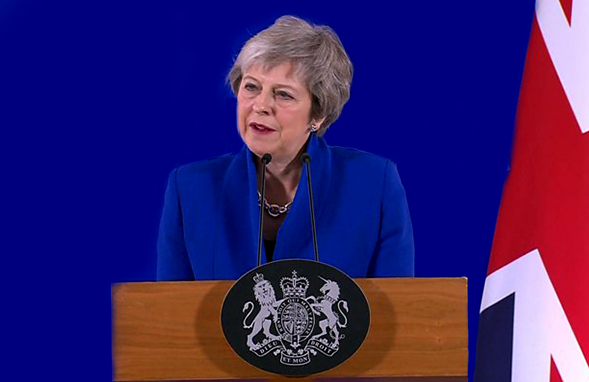

Ending much speculation, the European Union leaders on Sunday approved the Brexit deal. The Prime Minister of Britain, Theresa May, will now need to struggle to pass the Brexit bill through the Parliament and also convince her party members of the effectuality of the deal
Though the President of the European Commission, Jean-Claude Juncker, called the Brexit a “tragedy”, he also emphasised that the finalised deal was the best Britain could get. “This is the only deal possible,” he said, also adding that “those who think by rejecting the deal, will have a better deal, will be disappointed in the few seconds after rejecting the deal.”
The Brexit deal went through multiple roadblocks to get finalised. One contentious matter was the Irish backstop, with Northern Ireland preferring to stay within the EU’s single market and custom’s union, risking a hard border between it and Britain. The other was the status of Gibraltar. Spain’s Prime Minister Pedro Sanchez asserted last week that Spain would reject the draft Brexit withdrawal agreement, struck between the U.K. and EU in mid-November, without a clarification of the text that will determine the status of Gibraltar — a tiny overseas territory with British sovereignty on the south coast of Spain. Spain wants to ascertain that it will not be excluded from talks regarding Gibraltar’s status, even though in the 2002 referendum, the people rejected Spain and chose Britain.
However, PM Theresa May has succeeded in finalising the deal with the European Union. Austrian Chancellor Sebastian Kurz reiterated the European Union’s stance that the deal “will certainly not be renegotiated and there will be no further room for manoeuvre.”
After 45 years of membership, the Great Britain will leave the European Union. Finalised after 17 months of tough negotiations, the withdrawal agreement, as Brexit is formally called, covers financial matters, citizens’ rights, Northern Ireland and arrangements for a 21-month post-Brexit transition phase. Many in Britain continue to oppose Brexit and are demanding a second referendum, despite the fact that in the first referendum held on 23 June 2016, 52 percent of the citizens wanted to leave.








